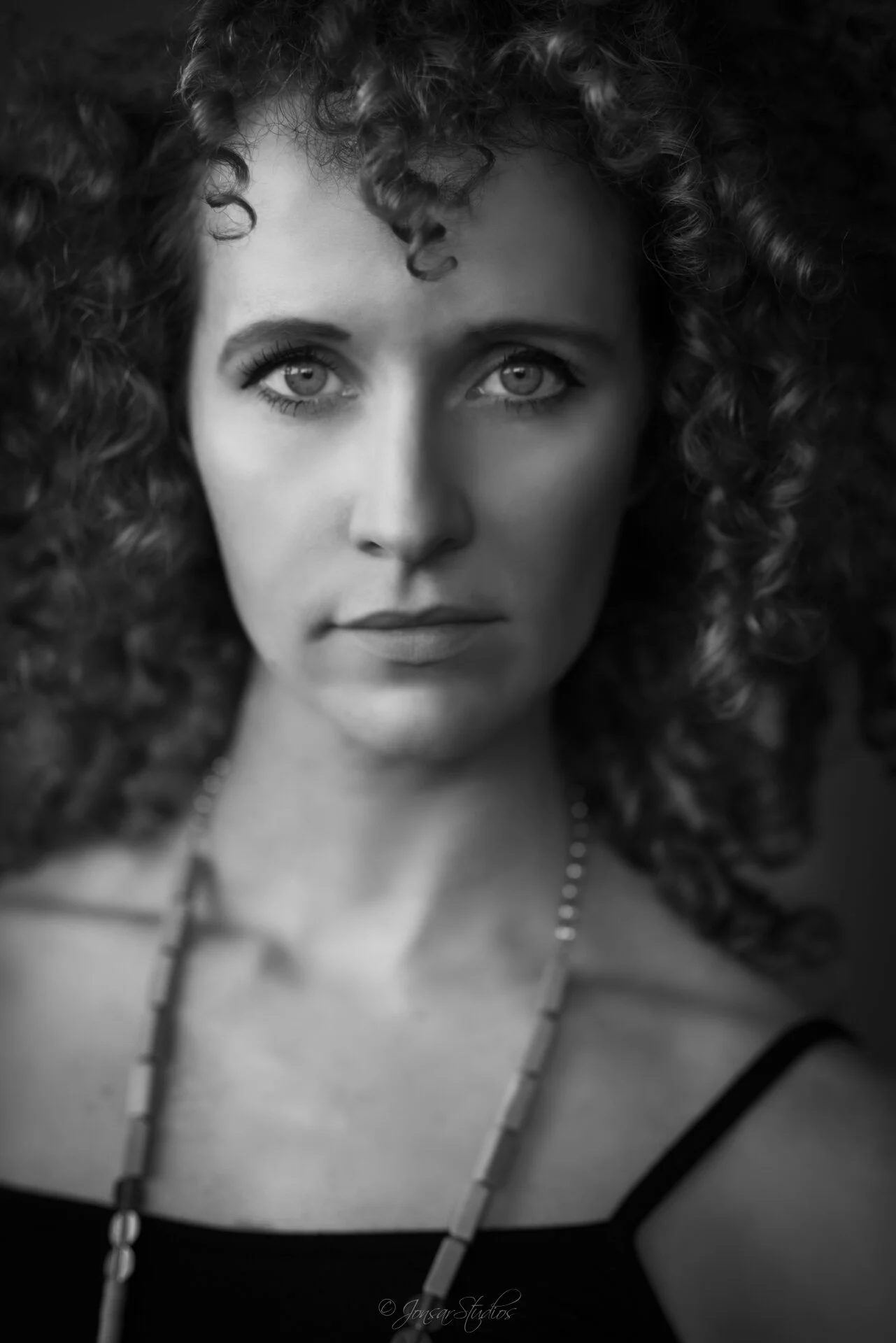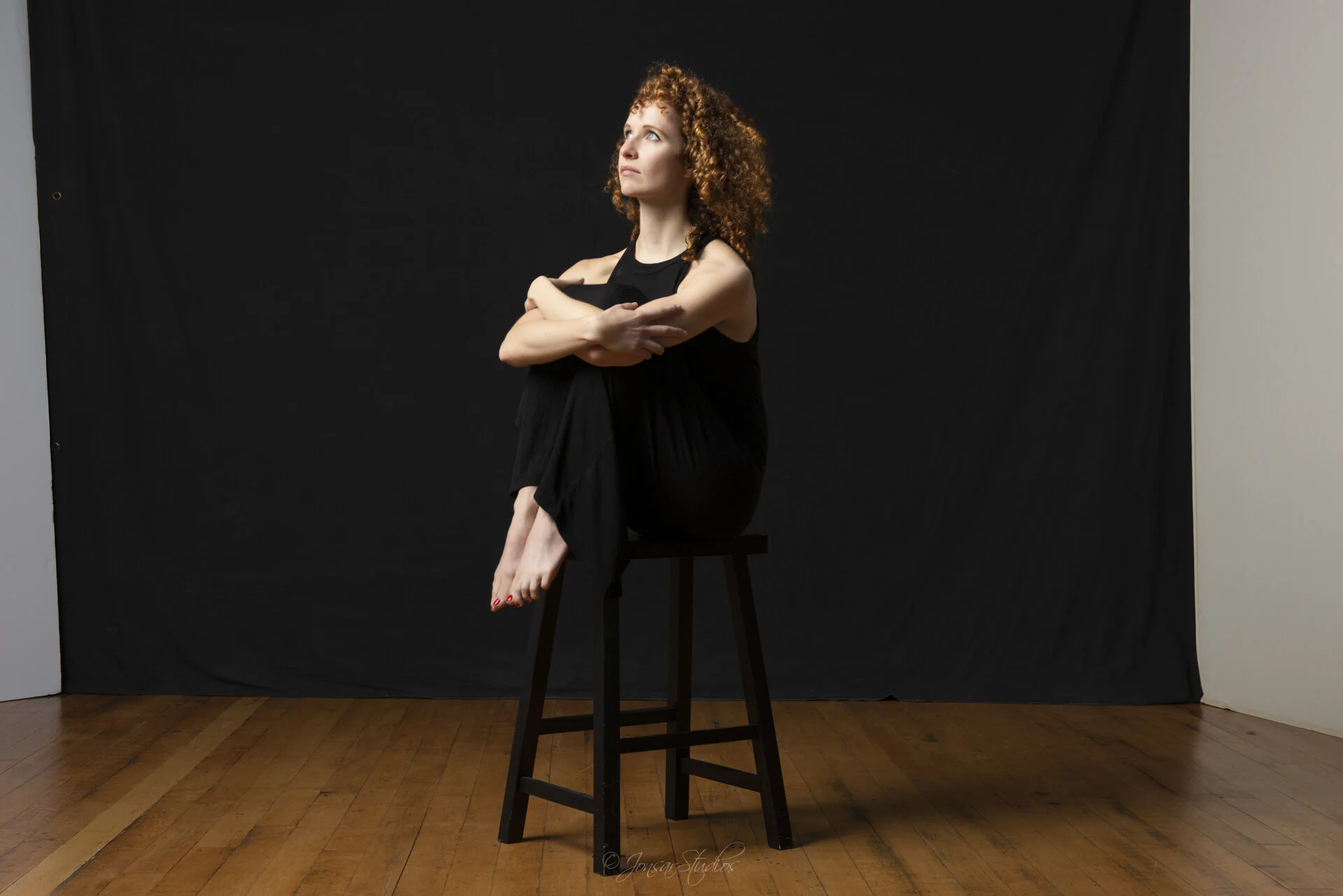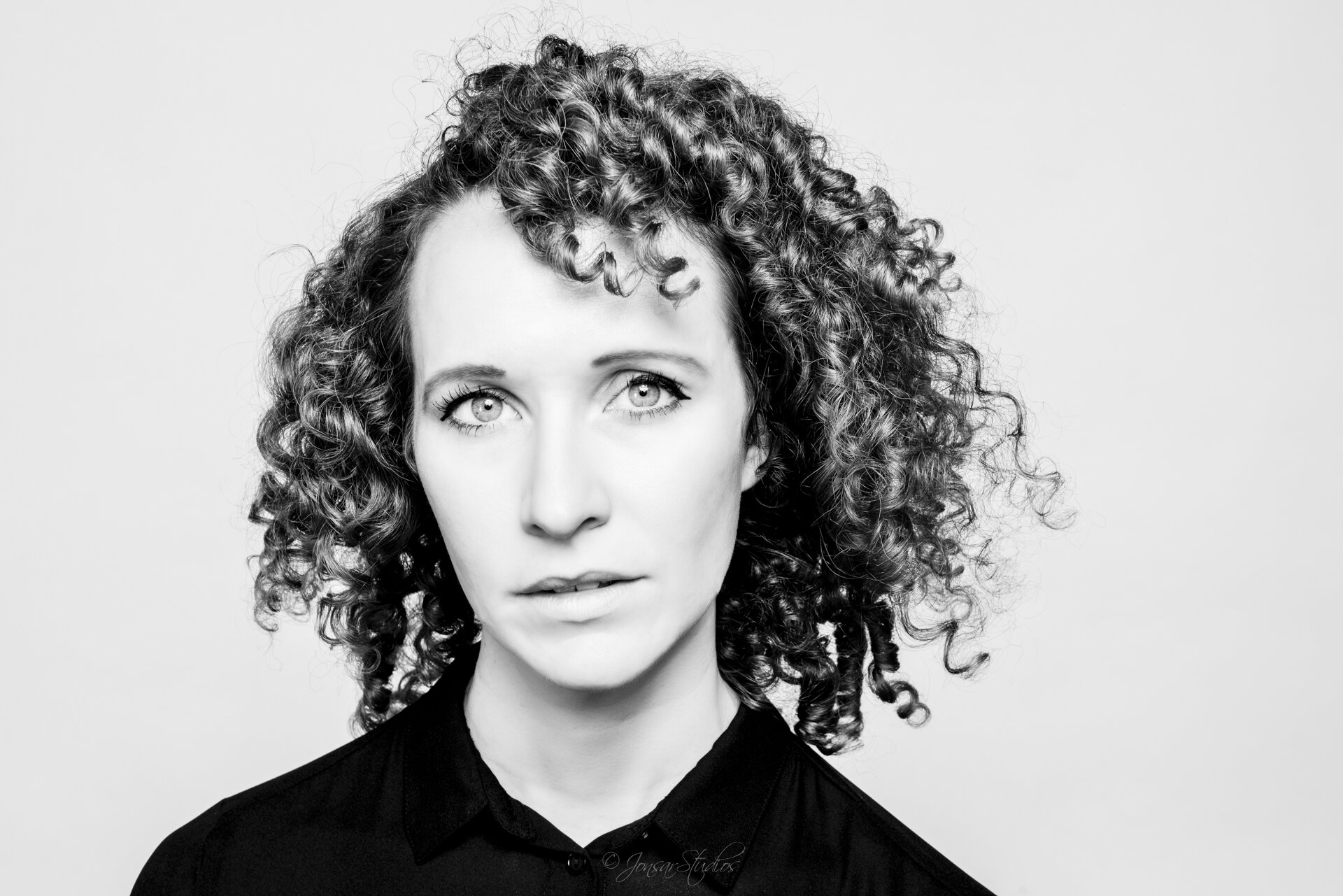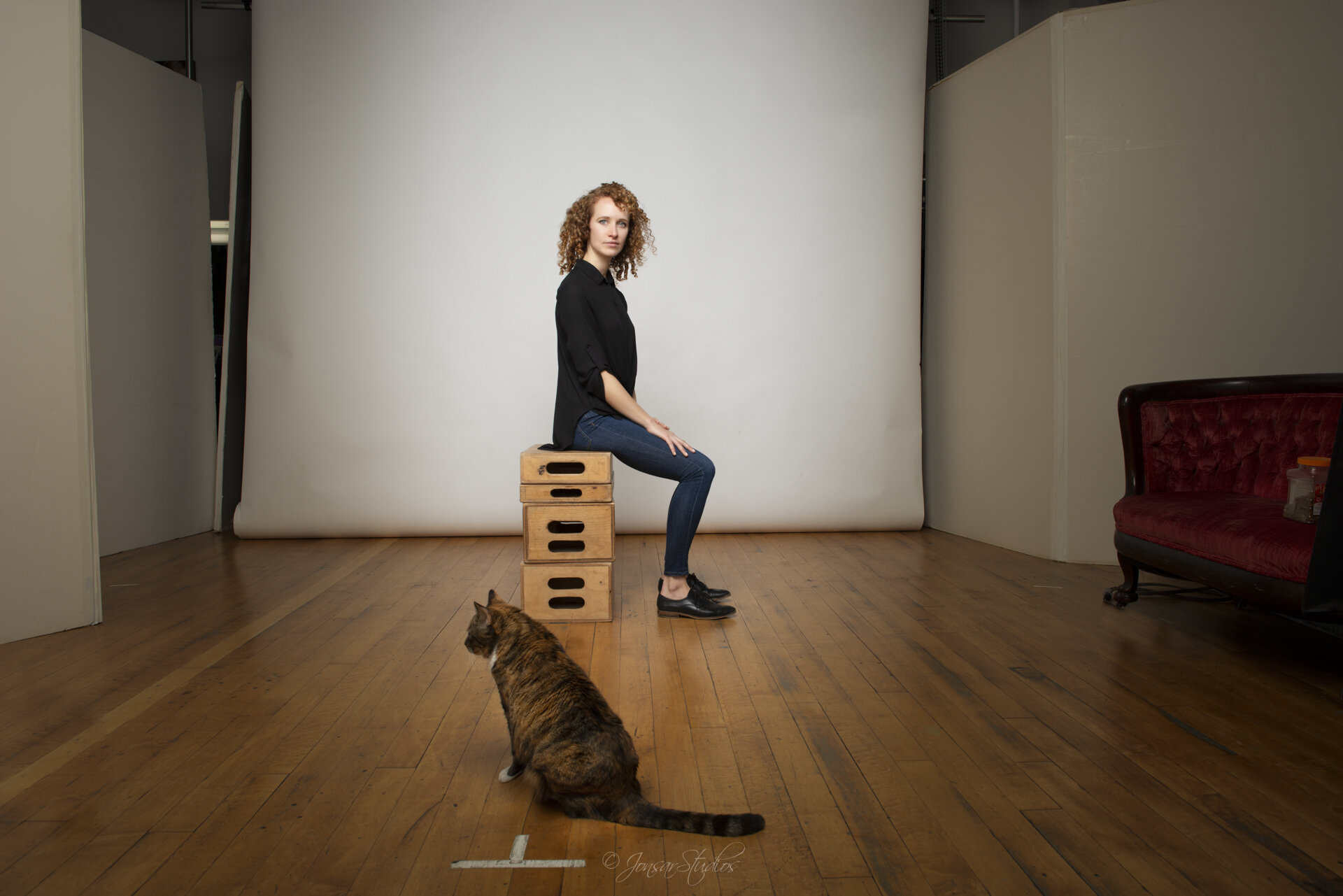Kate Dunphy - Conversations with Artists
What is the art of what you do?
A big piece of what my band does is bring back old songs that may not survive. As time passes and generations go on, certain music falls by the wayside — some songs survive and some songs don't. Much of the passion I feel comes from playing music for people that they might otherwise not hear; seeing their reactions. People say things like, ‘my grandmother used to play that song’ or ‘I heard that once before but I've never heard anyone play it live.’ I also love capturing the emotion that those songs bring out in their compositions; recreating it and presenting that old nostalgic feeling on stage.
What songs are we talking about?
They are songs that were written in the early 1900s, whether in the States or in Europe. Maybe they were popular in their heyday, but now, you’re probably not going to find them on Spotify. The way people experience music today is so different than even 10 years ago. You don't buy CDs anymore. Most people only have access to what’s available on Spotify or on I-tunes. There is so much more music out there, but it's not easily accessible electronically for people.
What about that genre moves you?
I grew up listening to the old Dixieland jazz recordings — I think it's a part of my musical upbringing. My dad is a musician and he says things like, ‘have you ever heard this weird song that Fats Waller wrote?’ or he’ll introduce me to an old Louis Armstrong song that no one knows about. He'll give me the sheet music and I'll play it and it brings me back to my musical roots.
Music has taken you on an amazing adventure.
I think also playing the accordion helped to expand my view from just American jazz to more international music. I started delving into French, Italian and eastern European music.
What led you to playing the accordion?
My dad actually gave it to me one year for Christmas, randomly. I fell in love with it and I started writing a lot of my own music for it. I find it to be a very inspiring instrument to play. It's really..... dynamic.
How does all that balance with your day job? Is there a synergy between the two passions?
I think so. I think people sometimes think that I work in healthcare because I can’t make enough money playing music. Or people say ‘oh your career is in healthcare and music is your hobby — is just something you do for fun.’ I really feel lucky in that I have two pieces of my life that I'm equally passionate about. Working in healthcare, even though it seems like it might be a daily grind, especially working with kids and families, requires a certain finesse and a certain creativity to accomplish what I need to accomplish. Being flexible and fluid in meeting people where they're at and finding creative ways to communicate is challenging. Every patient is a little different and has a different situation. Not seeing everything in black and white is helpful — so much in healthcare is shades of gray. When people try to see everything in black and white and only accept one approach, if that doesn't work then you've failed. Being able to think outside of the box is important - it really helps.
You have a second band — tell us about the two different bands.
The first band is Carte Blanche, and the second band is La PachaMambo. La PachaMambo is salsa, mambo, boogaloo; a 10-piece Latin orchestra. I wanted to put it together because I grew up in Maine and there was no Latin music scene to speak of at all. When I came to NY I discovered Salsa through DJs and in clubs. I’d seen a few bands and listened to different Latin artists - I'd listen to horn arrangements and I became a little obsessed. There’s a feeling that happens with people dancing salsa -- it's infectious. When I discovered that energy I knew I wanted to make that music. I could be having a terrible day, where everything is going wrong, and may not want to play a gig, I'm tired, whatever. After two, three songs into the set, it all goes away. You can't play Latin music and not be happy. It's impossible. It’s like tap dancing if you're sad. You can't be sad and tap dance.
What's the vibe with Carte Blanche?
The audience response is quite different and there's a different type of presentation. When we play a show where people are listening and watching the band - they're fascinated and drawn in. You sometimes see a look of people being transported. You see them getting sucked in —we’re taking them on a journey through all these songs and people are very moved by it. But it's a different energy. It's passive listening.
We first met many years ago on the train when you were lugging your accordion. What's it like carrying an accordion box around with you?
Most people are like, ‘Oh, so you play the Beer Barrel Polka’ or they think I'm carrying around a typewriter. At least you asked me an intelligent question - whether I played the Amelie Waltz! Anyway, these days I have a car so no more subway rides with my accordion.
Tell us about your day job.
I'm a pediatric nurse. I’ve been working in pediatric hospice and palliative care for the last three years; working with Children who are at end-of-life. It's sad, but it's also very rewarding and powerful work. I am now in school at Columbia to get my nurse practitioner license to be a pediatric nurse practitioner. I'm deciding whether to continue in palliative care at the level of a nurse practitioner. I may take a little break from that and work in emergency medicine for a while. But I think I'll probably eventually go back to pediatric hospice and palliative care. I think it's really important work, and not a lot of people want to do it. I think when you're experienced and confident and you're comfortable with the difficult conversations and the symptom management and you're comfortable with all the stuff that comes up... you can help families who are really at their ultimate lowest moment ever in their lives. So I think it’s important.
Why take a break from it?
It is a little bit of a heavy job as you can imagine. Right now I'm in school and I'm doing rotations through various clinics and hospital settings and Emergency Departments and it's kind of nice to take care of children that are going to get better. It’s nice to have a sick kid come to you and then you can actually treat them and they get better. That’s a rewarding feeling. A kid comes in and needs stitches, you stitch him up and send him out. A kid is dying of cancer, you go in and they're in horrible pain and you have to sit down and have these long conversations with the families and you walk away from that at the end of the day and you're empty.
Do you feel you're ever going to have to choose between the two worlds?
I've accepted that there are some gigs I'm not going to be able to do. When you have a full-time job you have to respect that. Generally speaking, I find ways to do both. I don't want to choose between them.
Why does music do to us what it does?
I think that music expresses the emotion of the performer and the composer. When someone writes a song they're drawing on whatever is inside of them so it can be expressed in a certain way. If someone else performs that song, they then are putting a piece of themselves into it and sending that out there. And the audience can interpret the song in a third way. A song is born, then it's interpreted and then it's received. It can capture so much of an era, and something very personal. Stylistically, it can reflect what's going on in a certain time.
Is there anything in the past 10 years since we first met that you've learned that's more important than anything else?
I think I've learned how to be more understanding with other people. I’ve come to recognize that you never know what's going on in someone else's life that is making them act the way they do. You can't control them and how they're acting, but you can control how you respond to them, how you act towards them. Sometimes taking a step back is so much more effective than trying to control them. Everyone is coming with their own baggage and demons. Everyone is experiencing the world from their own perspective. Everyone is in their own world looking out and you can't change what they've experienced in their life, and you're not the center of their world. Everyone is the center of their own world.
If you could go back and talk to 13-year-old Kate and whisper something in her ear - what would you say?
I would probably say ‘follow the path wherever it goes. Everything will be fine. You'll be able to pay your bills, you'll find love, you’ll play music. Just keep following the path. Don't overthink it too much. Just follow it wherever it goes.’
Kate Dunphy is a professional accordionist, pianist, composer, and bandleader living in Queens, New York. Kate is originally from Portland, Maine where she grew up in a musical family and attended the Hartt Conservatory of Music where she studied composition and was the recipient of the Edward Diamente award in composition. Kate is the founder and bandleader of two musical projects - Carte Blanche Jazz Band and La PachaMambo, which both perform regularly in NYC and around the world. Additionally, Kate is a practicing registered nurse and a doctoral candidate at Columbia University where she is a 2nd year nurse practitioner student in the pediatric primary care program.
Learn more about musician Kate Dunphy here.








